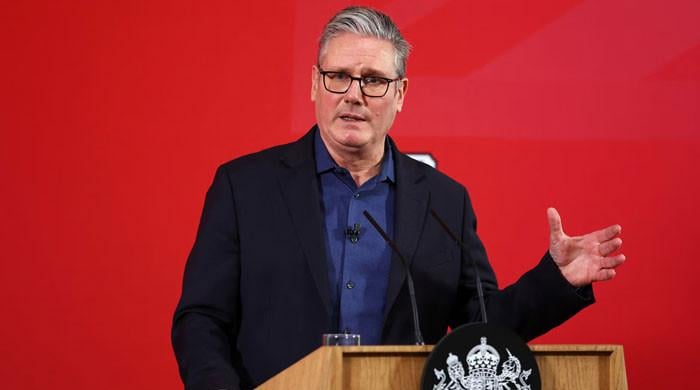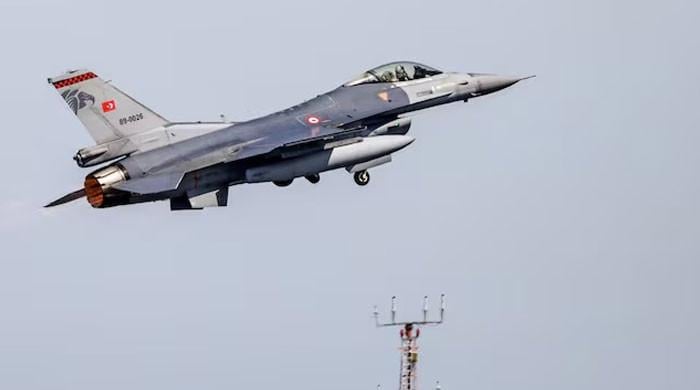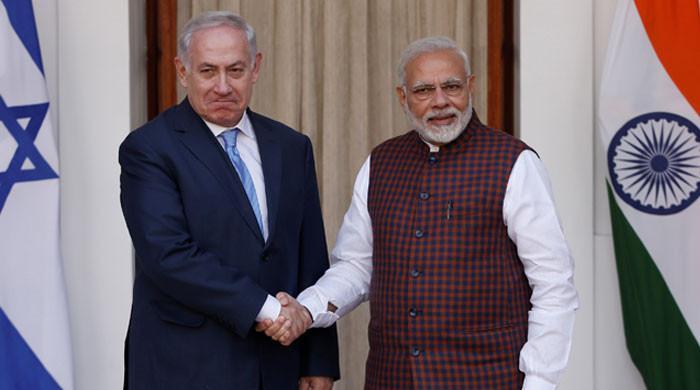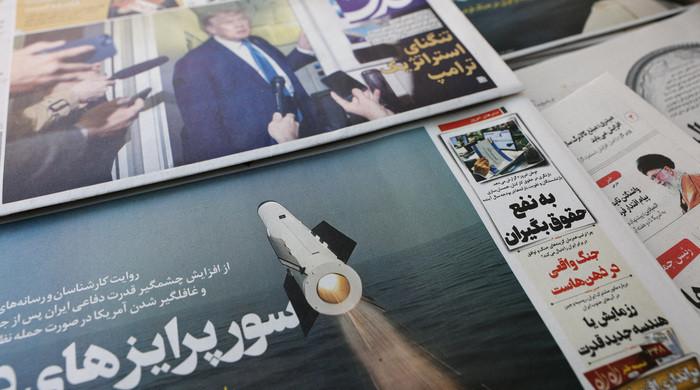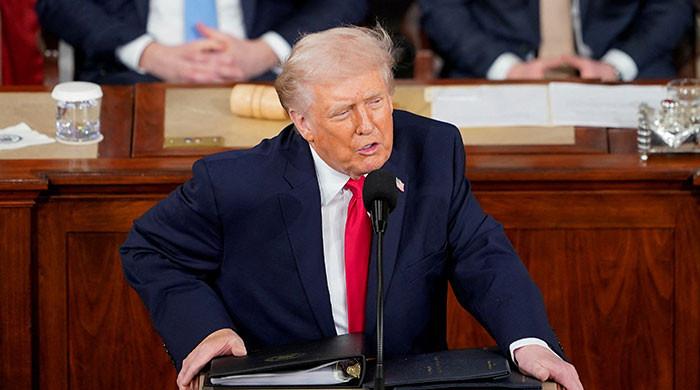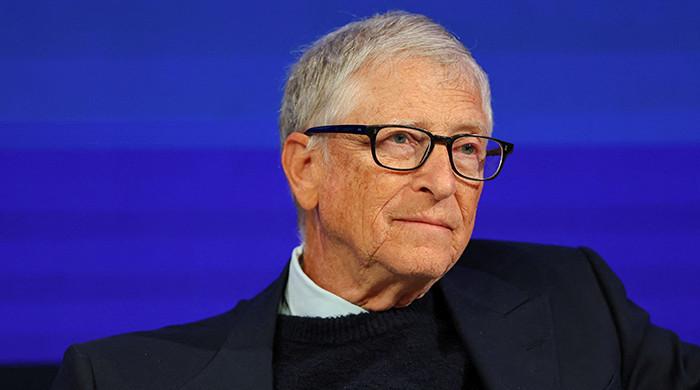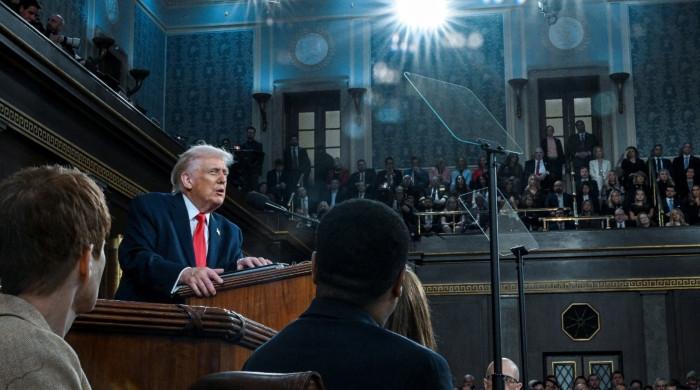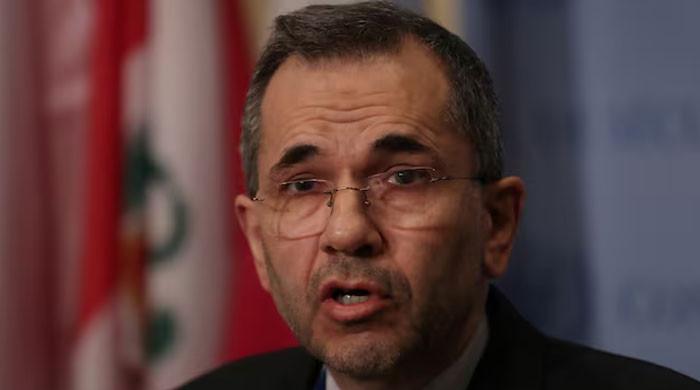Afghan Taliban handed over list of 5,000 prisoners to US: spokesperson
'There can be no dispute or doubt over the prisoners' identity now that we have handed over the list of prisoners to the US'
March 10, 2020
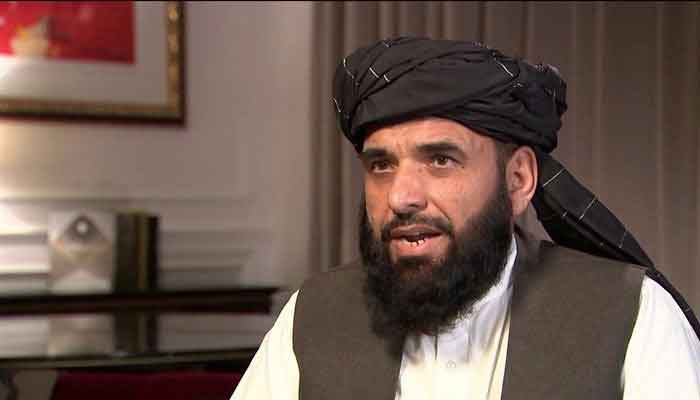
DOHA: The Afghan Taliban have handed over a list of 5,000 prisoners to the United States, a spokesperson for the group's Qatar Office, Suhail Shaheen, said Tuesday.
"There can be no dispute or doubt over the prisoners' identity now that we have handed over the list of prisoners to the US," Shaheen said.
"One of our conditions is that the prisoners be handed over in a less populated area or a Taliban delegation identifies the prisoners in the jail," the spokesperson added.
Afghan President Ashraf Ghani is set to make an announcement on releasing the Taliban prisoners, as well as the setting up of a discussion team.
Resolution in the UNSC
Earlier today, diplomats had said the US wished to hold a vote at the UN Security Council on Tuesday to approve Washington's deal with the Taliban that was meant to pave the way to peace in Afghanistan.
The US military has already started withdrawing its troops as part of the pullout agreed in the February 29 agreement with the Taliban. The request for a UN vote came after hard negotiations that began one week ago, diplomats said Monday.
Also read: US seeks to hold UN vote on Tuesday to approve Taliban deal
China requested in the last draft — already revised three times — that the resolution mention "regional cooperation," the sources told AFP.
The resolution comes amid a series of institutional crises in Afghanistan, following the double swearing-in on Monday of President Ashraf Ghani and his rival and former chief executive Abdullah Abduallah, both of whom claimed victory in the recent presidential election.
'Unbelievable'
According to the draft text seen by AFP, the Security Council "urges the Government of the Islamic Republic of Afghanistan to advance the peace process, including by participating in intra-Afghan negotiations through a diverse and inclusive negotiating team composed of Afghan political and civil society leaders, including women".
The US request that the UNSC adjust its agreement with the Taliban is a rare move in the forum for an accord between a foreign country and an insurgent group, diplomats had said.
Diplomats were also surprised that the agreement included two secret appendices on the fight against terrorism that Council members must approve without even knowing what they say. One diplomat had described it as "unbelievable."
Taliban to avoid targeting Afghan forces
The US military's recent attack on Taliban compound in Nahre Saraj area of Helmand province had enraged the insurgents, who then threatened they would not spare even US forces in case they violated the peace accord again.
Shaheen, however, denied these reports and said they would abide by the peace accord.
Senior Taliban members, who spoke to The News from an undisclosed location in Afghanistan’s Helmand province on March 8, said they would abide by the February 29 peace agreement after a couple of deadly attacks last week. They would avoid targeting Afghan security forces and their installations in major cities and populated areas after their "reduction in violence" (RIV) pact.
They maintained that although they were not bound to spare the Afghan security forces and their installations, they had principally decided not to attack them in major cities and other populated areas.
Spring offensive
“This is what we had committed in the peace accord that we would not carry out attacks in cities and other populated areas of Afghanistan. Also, we decided not to attack even the Afghan forces in cities but would be free to target them in rural areas,” said one senior Taliban leader.
Pleading anonymity, he said they had been training their fighters as usual in various training centres in Afghanistan for their planned "spring offensive" — to be launched by the end of March or early April. However, they would wait for the outcome of the proposed intra-Afghan dialogue, before launching it.
“Every year we launch spring offensive with a new name. This year, we may or may not launch it officially," he explained.
Prisoners' release clause delayed deal
"With the US-led foreign forces, we have already signed an agreement not to fight. And as for as the Afghan security forces are concerned, we would be waiting for the intra-Afghan dialogue and its outcome,” the Taliban leader said, adding that presently around 10,000-12,000 fighters were under training and their plan was to reach 15,000 this year.
The Taliban have time and again called for the release of their prisoners, including at one point extending a conditional offer to meet Afghan officials, before speaking to US President Donald Trump, who said he had had a "very good talk" with them.
The prisoner release dispute had emerged as a fresh impediment to the March 10 peace negotiations when just hours after the deal was signed on February 29, Afghan President Ghani had rejected the key component of the agreement that called for the release of thousands of up to 5,000 insurgent prisoners.
'No commitment'
"There is no commitment to releasing 5,000 prisoners," Ghani had said. "This is the right and the self-will of the people of Afghanistan.
"It could be included in the agenda of the intra-Afghan talks but cannot be a prerequisite for talks," he had noted, stressing that any prisoner release was "not in the authority of the US [but] of the Afghan government."
A prisoner swap arrangement was part of a US troop withdrawal agreement between the US and the Taliban. “The Taliban delegation has not met with the government delegation in Qatar but authorities responsible for prisoners on both sides could meet to discuss the issue,” Shaheen, the spokesperson, had tweeted.
But a US-Afghan declaration commits the Kabul government only to taking part in US-brokered talks on the “feasibility” of such a release.
The Taliban spokesperson in Afghanistan, Zabihullah Mujahid, had earlier told Reuters the prisoners’ release was one of the few important points that took US and Taliban negotiators a long time to agree upon.
'True testament'
The February 29 landmark peace deal, signed between the US and Afghan Taliban, aimed to see America withdrawing its troops from Afghanistan after almost two decades of war. The agreement spells out a withdrawal timeline of 14 months for all foreign forces, provided the Taliban honour several pledges and enter talks with Kabul for a more comprehensive peace deal.
At the time, US Secretary of State Mike Pompeo had said the deal was "a true testament of our actions" after the group "demonstrated that when they have the will to be peaceful, they can be".
Related: US, Taliban sign 'peace deal' as Afghanistan looks for end to 18-year war
"This agreement will not mean anything if we do not take concrete action on the promises made today. Keep your promises to cut ties with Al Qaeda; keep up the fight to defeat [Daesh]. All Afghans deserve to live and prosper without fear.
"The Afghanistan of 2020 is not the same as the Afghanistan of 2001. If you remain committed to negotiations with the Afghan government, we and the international community will reciprocate," he had said.




